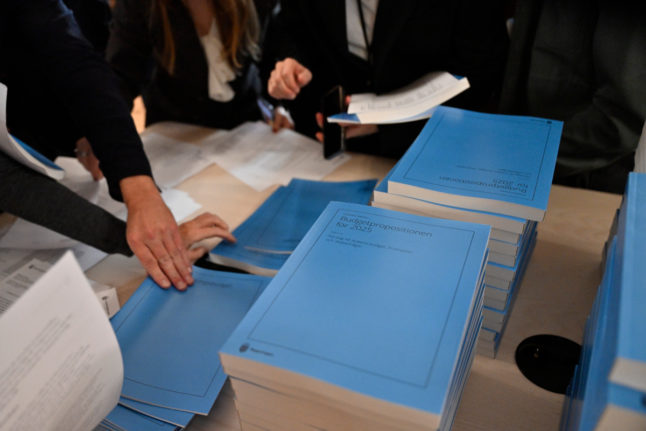Television cameras filmed Löfven handing his resignation letter to the speaker of parliament, Andreas Norlén.
“Well, here we are again,” he said as he and Norlén sat down for a Swedish fika – coffee and biscuits.
Andersson, who is currently Finance Minister, was elected to replace Löfven as party leader of the Social Democrats at the party’s congress last week, putting her on track to become the country’s first woman Prime Minister if she wins a vote in parliament.
No date has been set for that vote yet.
In Sweden’s parliament, political forces are so finely balanced that the Social Democrats need the support of both their Green Party coalition partners and the Left and Centre parties to elect a new Prime Minister.
The Centre Party on Wednesday said it would back Andersson, but the Left Party has not yet confirmed what it’s going to do.
The act of installing the first woman prime minister sounds almost anachronistic in a country that has long championed gender equality. All other Nordic countries – Norway, Denmark, Finland and Iceland – have all seen women lead their governments.
The change at the head of the Social Democrats comes as the party hovers close to its lowest-ever approval ratings with elections less than a year away, in September 2022.
The right-wing opposition, led by the conservative Moderates, has in recent years inched closer to the anti-immigration Sweden Democrats and hopes to govern with its informal backing.
‘Tight’ election seen
After being confirmed as party leader last week, Andersson, a former junior swimming champion often described as a “pragmatic” politician, outlined three political priorities for the coming years.
She said she wanted to “take back democratic control of schools, healthcare and elderly care”, in a country that has long had a debate over welfare sector liberalisation and privatisation and companies being able to profit from taxpayer money.
She also said she aimed to make Sweden a leader in the climate transition and become a role model for the world.
However, it remains to be seen how much change Andersson will be able to bring to the Social Democrats.
“Magdalena Andersson has worked closely together with Löfven for seven years. I expect no major changes,” Anders Sannerstedt, political science professor at Lund University, told AFP.
“The Social Democrats need to come up with some new policy ideas” if they want to win the election, he said.
But “Andersson is more a technocratic bureaucrat than a visionary creative leader. Time will tell.”
He predicted the general election would be a “very tight race”.



 Please whitelist us to continue reading.
Please whitelist us to continue reading.
Member comments